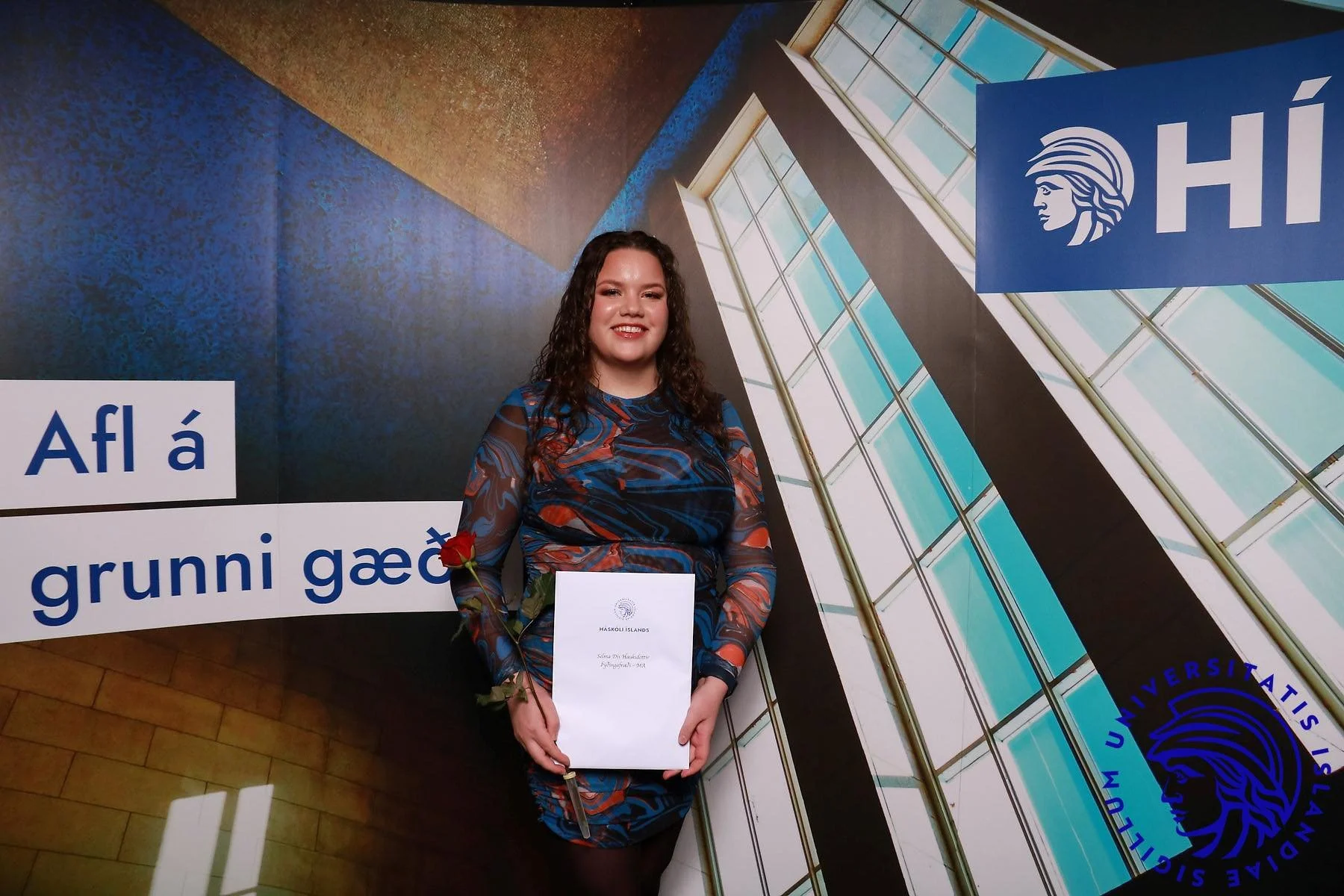Bright Futures for Humanities Students: Interview With Graduates
Author: Hallberg Brynjar Guðmundsson
If you are a student in the School of Humanities at University of Iceland, you might be familiar with the following questions:
What kind of job will you be getting after graduation? Are you going to be a teacher?
Even though many get a humanities degree and a teaching degree in Iceland, it doesn’t mean that everyone wants to be a teacher.There might not always be a strict correlation between a degree in humanities and the workforce but is that the purpose of higher education? Just studying for a safe and cushy white collar job? I think not.
As for myself, I am finishing my 5 year journey in the University of Iceland. With a degree in languages and literature, I have bright hopes for the future. The reason for that is that there is a huge amount of freedom in a humanities degree and if one is resourceful, it can undoubtedly help one prosper in life and work. Since the theme of this current issue is the future I decided to talk to 3 people who have graduated from the University with a degree in the humanities.
Selma Dís Hauksdóttir, BA degree in German og MA degree in Translations.
Employment: Translator at the Ministry of Foreign Affairs
How has a degree from the humanities helped you in your career?
Today, higher education is a requirement if one wants to work for the Ministry of Foreign Affairs. My degree in German helps in my line of work because I can compare meanings of words, I can explain them better, and it also helps me during my travels! Without my education, I would not have been hired.. Furthermore, the critical thinking and research techniques one learns in the humanities are helpful in my daily life. I also have a good network of people that I got to know better in school.
Why did you choose to study the humanities?
When I was 15 years old I decided that I wanted to study translations at the University of Iceland. I have a wide range of interests but languages have always been up there. Everyday, I learn something new about texts and various other things.
Karl Ólafur Hallbjörnsson, BA in Philosophy at the University of Iceland, MA in Continental Philosophy at the University of Warwick
Employment: PR liaison and assistant for the Pirate Party in Iceland/Copywriter
How has a degree from the humanities helped you in your career?
Today, higher education is a requirement if one wants to work for the Ministry of Foreign Affairs. My degree in German helps in my line of work because I can compare meanings of words, I can explain them better, and it also helps me during my travels! Without my education, I would not have been hired.. Furthermore, the critical thinking and research techniques one learns in the humanities are helpful in my daily life. I also have a good network of people that I got to know better in school.
Why did you choose to study the humanities?
When I was 15 years old I decided that I wanted to study translations at the University of Iceland. I have a wide range of interests but languages have always been up there. Everyday, I learn something new about texts and various other things.
Karl Ólafur Hallbjörnsson, BA in Philosophy at the University of Iceland, MA in Continental Philosophy at the University of Warwick
Employment: PR liaison and assistant for the Pirate Party in Iceland/Copywriter
Why did you choose to study the humanities?
I chose the humanities because I was interested in philosophy. I read Plato when I was sixteen years old and that was the point of no return. Ancient Greek philosophy was my ‘gateway drug’ in a sense.
How has a degree from the humanities helped you in your career?
I’m not sure whether the humanities have directly helped me in my career - but maybe it depends how one judges a successful career. I am sure that I could have a higher salary if I had studied something else. However, I don’t think I would have found the sense of fulfillment and self-awareness that I discovered in philosophy. Besides that, I learned how to be proficient when I am defending an argument to someone, and how to use focused critique to understand things as well as people. It’s an ability that does not come easily for everybody and is therefore in high demand.
Snorri Másson, BA degree in Icelandic literature and linguistics
Employment: Various jobs in Media but mostly a journalist for Sýn
Why did you choose to study the humanities?
I wanted to learn about Icelandic literary history and I have a great interest in linguistics. I’ve always planned to work with text in one way or another.
How has a degree from the humanities helped you in your career?
For me, it is good to have this formal degree so I can give my opinions a certain amount of legitimacy. Another way it has helped me is through the amount of knowledge that one has to ingest when studying Icelandic. I think there is a chronic overlook in the teachings of Icelandic in its written form and one can make up for that in the University. Write, write, write. Practice makes perfect.




